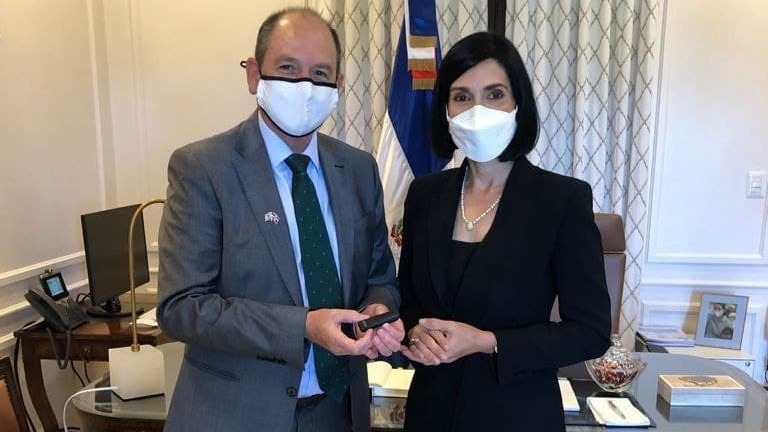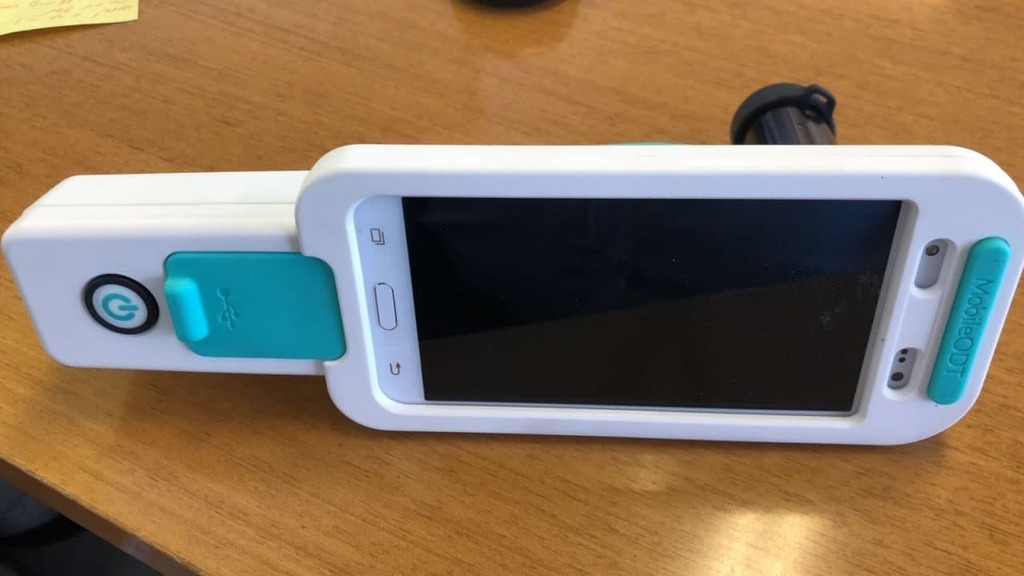An Israeli-made early cancer detection technology is winning much praise in the Dominican Republic for helping to diagnose hundreds of women with early stages of cervical cancer, potentially saving the lives of many of them.
Israeli femtech firm MobileODT launched in recent months a large-scale nationwide campaign together with the Caribbean country's government intended to screen some 50,000 local women for cervical cancer, using the company's EVA Visual Check AI technology.
2 View gallery


Israeli Ambassador to the Dominican Republic Danny Biran and Dominican Republic Vice President Raquel Peña de Antuña showcase MobileODT's EVA Visual Check AI technology
(Photo: Israeli Embassy in the Dominican Republic)
The novel AI-based kit allows non-specialists to diagnose abnormal cervical findings in their early stages using an ordinary smartphone and match the patient with adequate preventive treatment.
The company's activities in the Dominican Republic were made possible thanks to the efforts of the Israeli ambassador in the country, Danny Biran.
At the end of a two-year process during which embassy representatives met with various government officials, MobileODT launched the campaign, performing over 18,000 tests on Dominican women, many of them of modest means.
The project was recently presented by the Israeli envoy to Dominican Republic Vice President Raquel Peña de Antuña who was deeply impressed about the initiative's results and even tweeted about the Israeli innovation.
"Israeli technology can reach anywhere in the world, make essential health services accessible to everyone and present fast results and above all — save lives," said Ambassador Biran said. "We will continue to work on a variety of issues in the field of groundbreaking and life-changing Israeli technologies together with Israel's great friend, the Dominican Republic."
2 View gallery


MobileODT's EVA Visual Check AI technology
(Photo: Israeli Embassy in the Dominican Republic)
MobileODT, which was established in 2012, developed an inexpensive mobile kit called EVA System, which is based on the smartphone’s photography and processing abilities and allows it to perform vaginal colposcopy. The kit includes a zoom lens that is attached to the smartphone camera and a powerful lighting unit that allows clear imaging of the cervix. After testing, the images can be sent to gynecologists and experts through a mobile app for diagnosis. In addition, the product also includes smart decoding of the test, based on algorithms developed using machine learning performed on large databases of patient’s cervical imaging.
This assessment allows nurses, midwives and therapists to perform a simple diagnostic test even in remote locations and countries in which medical infrastructure is lacking, and thus help lessen cervical cancer mortality rates. The EVA System kit, which received FDA approval in 2016, is sold today in about 30 countries and is in use in 60 clinics in the U.S.

